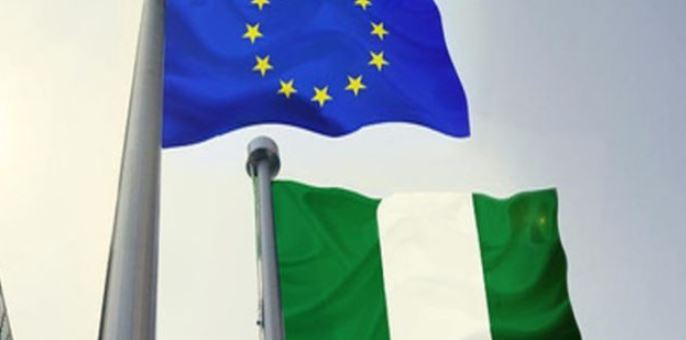The European Union (EU) Delegation to Nigeria and ECOWA on Monday said it had committed the sum of 500,000 euros to support Nigeria’s fight against cholera.
The EU Delegation made the commitment in a statement signed by Mr Modestus Chukwulaka, its Press Officer, and made available to the News Agency of Nigeria (NAN) in Abuja.
Chukwulaka said the cholera epidemic was spreading fast, especially in Borno, Adamawa and Yobe states.
He said around 1.6 million internally-displaced persons and one million members of the local population were at risk.
He added that at least 11,820 cases and 382 associated deaths had been reported in these states.
He quoted the EU Commissioner for Crisis Management, Janez Lenarčič, as saying: “Nigeria has been facing many crises at the same time, including measles and malaria outbreaks.
“Record levels of food insecurity and malnutrition, and catastrophic flooding, also impacted negatively on the spread of cholera.
”This is in addition to the security situation, which has rendered access to many communities increasingly challenging.
“The EU with its epidemics support tool funds and our humanitarian partners will work to reduce morbidity and mortality through early detection, awareness raising, health education and case management.”
The statement further said the EU had already allocated 100,000 euros to Nigeria in response to the floods affecting the country.
NAN reports that the EU has been partnering with Nigeria and also responded to flood management and humanitarian aid in some states in the country.
The EU and its Member States are the world’s leading donor of humanitarian aid relief assistance, which is an expression of European solidarity with people in need all around the world.
It aims to save lives, prevent and alleviate human suffering, and safeguard the integrity and human dignity of populations affected by natural disasters and man-made crises.
Through the European Commission’s Civil Protection and Humanitarian Aid Operations Department, the EU helps millions of victims of conflict and disasters every year.
With headquarters in Brussels and a global network of field offices, the EU provides assistance to the most vulnerable people on the basis of humanitarian needs.









